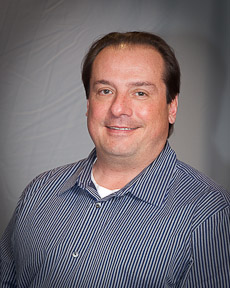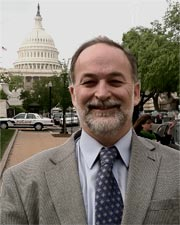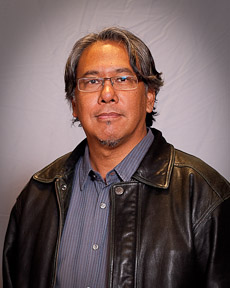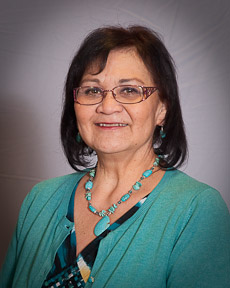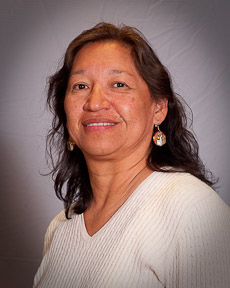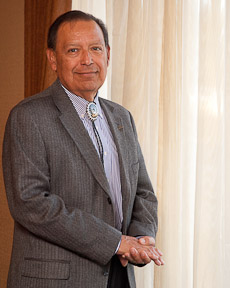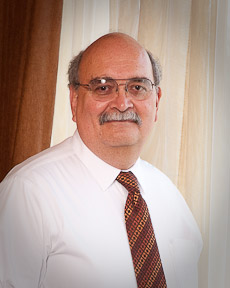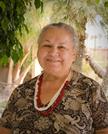NRC4Tribes Consultants
|
Abby Abinanti (Yurok) is a graduate of Humboldt State College and the University of New Mexico School of Law. When Abby was admitted to the California State Bar in 1974, she was the first California Native admitted to the California State Bar. Abby is one of a very limited number of attorneys who have been practicing tribal child welfare law since prior to the 1978 enactment of the Indian Child Welfare Act. Abby has served as a California Superior Court Commissioner for the City and County of San Francisco assigned to the Unified Family Court for the past 18 years, but retired in September 2011. Judge Abinanti has also served as Chief Judge for the Yurok Tribal Court since her appointment in March 2007. Her additional tribal court experience has included serving as Chief Magistrate, Court of Indian Offenses, for the Hoopa Valley Indian Reservation from 1983-1986 and as a Judge by special appointment for many other tribal courts including Shoshone-Bannock Tribal Court (1985), Hopi Tribal Court (1986), and Colorado River Indian Tribe (1994). Judge Abinanti has served as the President of the Board of Directors of the Tribal Law and Policy Institute www.tlpi.org since TLPI’s establishment in 1996. She also currently serves as a member of National Child Welfare Resource Center on Tribes (NRC4Tribes) National Advisory Council, a board member of the San Francisco Friendship House Association of American Indians, Inc., and previously served as a board member for the National Court Appointed Special Advocate (CASA) Association and its Tribal Court CASA Advisory Council. Abby is also the author of various training resources including two Instructor Guides for TLPI’s Tribal Legal Studies textbook series. |
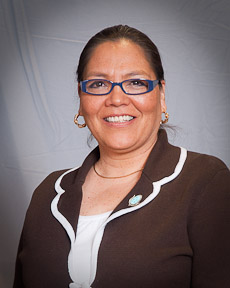
Connie Bear KingLead Consultant National Resource Center for Tribes
Location: Tualatin, Oregon + Show Bio Connie Bear King is an enrolled member of the Standing Rock Sioux Tribe. Ms. Bear-King is currently a lead consultant for the National Resource Center for Tribes. The new NRC4Tribes is an historic new project for the Children’s Bureau’s Training and Technical (T&TA) Network. Prior to becoming a consultant with the NRC4Tribes she was the Director of Community Development and Government Affairs Associate for the National Indian Child Welfare Association (NICWA). Ms. Bear King served as a member of The National Judicial College, Tribal Judicial Institute Faculty in 2007, she taught the sections on Restorative Justice, Alternative Dispute Resolution, and Mediation. She lived and worked in Sioux City, Iowa as the Executive Director for the Sioux City Office of Indian Education. Ms. Bear King served in a variety of national, state, and community leadership positions. Ms. Bear King was elected to the board of the National Association for Community Mediators. By appointment of Iowa Governor Thomas Vilsack, Ms. Bear King served on the District 3B Judicial Nominating Commission and on the Child Advocacy Board (CAB). Her committee memberships include co-facilitator for the Community Initiative for Native Children and Families (CINCF) in Sioux City. In 2003, CINCF advocated for the passage of Iowa’s Indian Children Welfare Act. In 2005 she received the Women Aware Award for “Women Taking Risks,” and in 2007 she received the “Chief War Eagle” Award from the Sioux City Human Rights Commission. |
|
Russ is a consultant and president of Eagle Warrior Consulting, has 18 years experience in the field of Indian Child Welfare as a social worker, clinical supervisor, training specialist, and director. He worked for Casey Family Programs in Pine Ridge, SD and Denver, Co and helped transition its Pine Ridge Division to a tribally chartered child welfare agency. During that time, he worked with tribal leaders to develop and implement culturally-based methods of practice including Family Group Decision Making and the Oglala Lakota Practice Model. He currently works as a consultant providing clinical social work services, facilitation training, and technical assistance. |
|
Craig Dorsay is a partner in the firm of Dorsay & Easton, LLP. He has specialized in the practice of Indian law for over 30 years. He is a nationally recognized expert on the Indian Child Welfare Act and represents the Siletz Tribe and the Samish Indian Nation as general counsel. He has represented a number of other Indian tribes on ICWA cases, including the Navajo Nation, the Klamath Tribes, Suquamish Tribe, Tulalip Tribes, Coquille Indian Tribe, Port Gamble and Lower Elwha S’Klallams, Prairie Island Indian Community, and the Village of Tatitlek. Craig worked as an Assistant Attorney General for the Navajo Nation for three years and was an editor of the Cohen Indian Law Treatise. He teaches and writes extensively on the ICWA and other Indian law issues. He is a consultant for the American Bar Association Resource Center for Children and the Law, the National Resource Center for Tribes, and the National Indian Child Welfare Center on issues such as the ICWA; the Title IV-E program; the interaction of ASFA and the ICWA, and on customary adoption. |
|
Lucille Echohawk (Pawnee Nation of Oklahoma) has worked on behalf of First Nations families, communities, and tribes at the local, state, and national levels including being a founder of Native Americans in Philanthropy. She earned a B.A. at Brigham Young University and a Med at Loyola University of Chicago. Lucille served for many years (prior to her December 2010 retirement) as a Senior Specialist in Indian Child Welfare, with Casey Family Programs, and working in the Great Plains Region as well as nationally. She currently serves as a member of National Child Welfare Resource Center on Tribes (NRC4Tribes) National Advisory Council, a member of the American Humane Association Board of Directors and its Children’s Advisory Committee, and as a member of the Child Welfare League of America’s Executive Committee. |
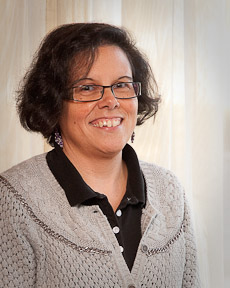
Carrie GarrowDirector Syracuse University Center on Indigenous Law
Location: Liverpool, New York + Show Bio Carrie Garrow St. Regis Mohawk Tribe, Director, Syracuse University Center on Indigenous Law, Governance & Citizenship. Ms. Garrow is a member of the St.Regis Mohawk Tribe, raised at the Akwesasne Territory in New York; earned A.B. from Dartmouth College, J.D. from Stanford Law School; Master's in Public Policy from the Kennedy School of Government at Harvard University; former deputy district attorney; Chief Judge of the St. Regis Mohawk Tribal Courts, and the co-author of the forthcoming Tribal Criminal Law and Procedure;consultant for Tribal Law and Policy Institute, the Harvard Project on American Indian Economic Development, and the Native Nations Institute. |
|
Karen Hamiltion was born and raised in and around Bourbon County, Kentucky, the foothills to the Appalachian Mountains and her family tribal affiliation is Cherokee and Eastern Shawnee. She has 7 children, 16 grandchildren, 1 great grandchild, and one on the way in July. She received her Associate of Science in Fall 2001 and in May 2002 earned her BA from St. Gregory University in Shawnee, OK majoring in Psychology and Sociology with a minor in Business. From February 2002 – Oct. 201, she served as Sac and Fox Nation Indian Child Welfare Director, Caseworker, and Advocate. Areas of focus include Federal & State Indian Child Welfare Act knowledge and practice, child protection and out-of-home care, forensic interviewing, domestic violence, grant writing, and management and reporting. Grants written and maintained by her included Title IV-B subpart 1 & 2, Family Violence Prevention Grant, and the Title IV-E Implementation Grant. Ms. Hamiltion assisted with the writing of the Tribal State Agreement for Title IV-E Funding to Tribal foster parents to maintain tribal foster home policy and procedures, to coordinate and participate in tribal and state investigations with the State of Oklahoma Department of Human Services and the Federal Bureau of Investigations. She qualified as an expert witness in Indian Child Welfare Cases as to Deprived/Neglected children, she developed the Title IV-E Implementation Grant (the first tribe in Oklahoma), and was one of seven tribes in the country to be selected. After two years with the team, she submitted a pre-print to the Administration for Children and Families as well as the Cost Allocation Plan. Ms. Hamiltion is a recipient of the Sonya J. Atewathukah Award (2009) honoring distinctive child advocacy and service for Native American children within the state of Oklahoma. she is a certified Indian expert witness in over eight district courts including Tribal Courts, Oklahoma, California, Kansas, Washington, Texas, Arkansas, Florida, and Military Base Court in North Carolina. |
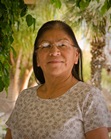
Emily Iron Cloud-KoenenExecutive Director Lakota Oyate Wakanyeja Owicakiyapi
Location: Porcupine, South Dakota + Show Bio Emily Iron Cloud-Koenen (Oglala Lakota) is the Executive Director of Lakota Oyate Wakanyeja Owicakiyapi which is located on the Pine Ridge Reservation in South Dakota. |
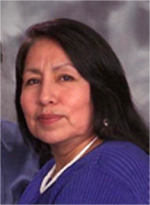
Ethleen Iron Cloud-Two DogsTraining and Technical Assistance Specialist Education Development Center, Inc
Location: Porcupine, South Dakota + Show Bio Ethleen Iron Cloud-Two Dogs is an enrolled member of the Oglala Lakota and also has Crow ancestry. She is from the Knife Chief Tiospaye (extended family) of Porcupine, SD on the Pine Ridge Indian Reservation and has worked in the field of children/youth, family and community development with special emphasis on culturally appropriate interventions and helping tools since 1984. Ethleen is a graduate student in Colorado State University's Education, Culture and Language Doctoral program and also works for the Education Development Center, Inc. as a Training and Technical Assistance Specialist. |
|
Tom Lidot (Tlingit and Haida) is a member of the Central Council of Tlingit and Haida Indians of Alaska, and an enrolled member of Chilkat Indian Village (where his grandmother was born). He is actively involved with local, regional, and national Tribal issues related to health, child welfare, and self-determination. His work experience is built on direct service expansion for healthcare and education programs. His experience in mediation / alternative dispute resolution serves as the foundation for his approach to cross-cultural training and facilitation. He leads Pacific Mountain Philanthropy, a team of executives with experience providing local, regional, and national training and technical assistance that improve outcomes for American Indian children and families. He walks in two worlds: as a Tribal member who strives to maintain culture and tradition, and as an active advocate for the advancement of science and education. He has over 20 years of non-profit experience in fundraising for non-profits through grant writing, corporate sponsorships, foundation campaigns, direct mail, and capital campaigns, with a successful track record of securing over $10 million to date. |
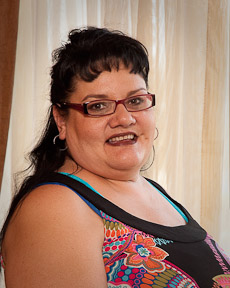
Renee MayerDirector Fort Berthold Child Welfare Department
Location: New Town, North Dakota + Show Bio Renee Mayer (Three Affiliated Tribes) is the Director of the Fort Berthold Child Welfare Department in North Dakota. She is also the president of the board of directors of the Native American Training Institute (NATI) in Bismarck, North Dakota. NATI is an inter-tribal child welfare training organization created and governed by the four North Dakota Tribal Child Welfare agencies serving the Mandan, Hidatsa & Arikara Nation; Turtle Mountain Band of Chippewa, Spirit Lake Tribe, and the Standing Rock Sioux Tribe. She is also a member of the National Child Welfare Resource Center for Tribes (NRC4Tribes) National Advisory Council. Rebekah “Becky” Main is a Wasco/Warm Springs tribal member of The Confederated Tribes of Warm Springs (CTWS). Becky graduated from Oregon State University in 1997 in Human Development and Family Services and received a Masters Degree in Business Administration: Human Resources Management in 2007. |
|
Mary McNevins (Muskogee Creek), is the Indian Child Welfare manager for the Oregon Department of Human Services. She was the former Director of Community Development at the National Indian Child Welfare Association and previous Child Welfare Director for the Confederated Tribes of Warm Springs. She has been a tribal liaison and Indian child welfare advocate throughout her career. She brings more than 30 years of experience specializing in Indian Child Welfare, Title IV-E agreements, Family Group Conferencing, multi-disciplinary child protection teams, and the development and assessments of comprehensive Indian child welfare programs. From 1993–2001 Mary was appointed by the Governor of Oregon to serve on the Oregon Children’s Trust Fund as a board trustee and recently re-appointed in 2004 to present. Mary was elected to the National Association of Public Child Welfare Administrators (NAPCWA) Executive Committee in 2004. She co-chairs the ICWA Managers nationwide monthly meetings sponsored through CWLA and Casey Family Programs. She is a founding board member (2004) of the Indian Child and Family Resource Center, and is a member of the National Child Welfare Resource Center for Tribes (NRC4Tribes) National Advisory Council. |
|
Rose Mendoza – is a member of the Rosebud Sioux Tribe and has worked in the child welfare field for 22 years. Her work experience is in the Child Protective Services field and the Indian Child Welfare Act. She has worked on the Rosebud Reservation, Oglala Sioux Reservation and also Standing Rock Sioux Reservation. She has experienced working with 3 different tribal courts. She has worked for tribal programs as well as the State of South Dakota. In Pine Ridge (Oglala Sioux) she worked as a family services specialist for the State Dept. of Social Services, Child Protection Services. In Mission (Rosebud Sioux) she worked for the state as a family services specialist as well as a supervisor. During her work experience with the State she gained a lot of valuable knowledge on Title IVE funding and how the State works to implement Title IVE within their Child Protection Services. The Standing Rock Sioux Reservation / Child Protection Services program is a Tribal program that has a Title IVE contract with the states of South Dakota and North Dakota and her job there was the Director and to oversee the program so that it would be IVE compliant. Standing Rock also licenses their own foster homes which was also a part of the program that she was the Director of. Her experience with the Rosebud Sioux Tribe was working with a culturally- based intensive placement prevention program which provided in-home services to at risk families. She was also the ICWA Representative for Rosebud for 7 years and she was also the ICWA Representative at Standing Rock for approximately 2 years. She extensive experience in court testimony as an ICWA Representative and am currently listed on the SD-DSS ICWA website as an ICWA expert witness. She has 5 children and her youngest is a junior in high school. She also has 7 grandchildren that she enjoys spending as much time with as she can. Her background is that she was raised in a traditional upbringing. Growing up they never had a babysitter, her mother was always with them and when she had to be away they stayed with one of their grandparents. Their family has been involved with the Sundance for the last 34 years. They currently have a family (Tiyospaye) sundance every year where just the extended family participates. |
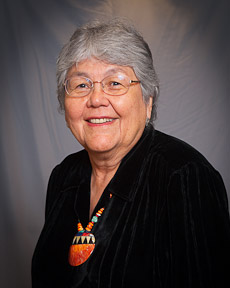
Rose Margaret OrrantiaTribal STAR Team Member Academy for Professional Excellence
Location: San Diego, California + Show Bio Rose Margaret Orrantia (Yaqui) completed her Bachelor's and Master's Degrees at San Diego State University. She worked at the Institute of American Indian Arts in Santa Fe, N.M. for 18 years. Returning to San Diego, she served as the Executive Director of Indian Child and Family Services (ICFS), a State Licensed Foster Family and Adoption Agency serving the American Indian population in San Diego and Riverside Counties. After leaving ICFS she served as a consultant and grant writer to Indian Tribes and non-profit agencies for eight years and as the Director of Foster Family and Adoption Agencies in the non-Indian world. Currently she works at the Academy for Professional Excellence, a program of the SDSU School of Social Work, as a member of the Tribal STAR team. She is also a member of the National Child Welfare Resource Center for Tribes (NRC4Tribes) National Advisory Council. When not at work Margaret travels, reads science fiction and grows orchids. |
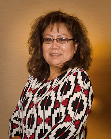
Cora M. PhillipsExecutive Staff Assistant Navajo Nation First Lady
Location: Window Rock, Arizona + Show Bio Cora M. Phillips attended all three Arizona state universities. She graduated from NAU with a Bachelor’s degree in Public Administration and a Master’s Degree from Arizona State University in Clinical Social Work. She has served as a cabinet member of Dr. Joe Shirley’s Administration for the last 8 years, as an Executive Staff Assistant to the President and as a Division Director for Social Services. She was appointed under three administrations in Navajo Nation. She has 30 years of human services and over 20 years of management experience. She has served on numerous board and commissions; the Arizona Commission on Indian Affairs, the ASU Office of American Indian Projects Advisory Board, National Tribal Resource Center for Tribes advisory council and senior consultant. She has worked closely with the federal Children’s Bureau, Administration for Children and Families, National Indian Child Welfare Association, National Juvenile Justice, National Casey Family Programs, National Resource Centers, Western and Pacific Child Welfare Systems Implementation Center, etc. As a Division Director for Navajo Social Services, she has worked on the Child Abuse Protocol, Case Management Protocol, Vulnerable Adult Protection Act, Children’s Code, Violence Against Family Act, Dine Natural Resources Protection Act. She has been inducted into the International Who’s Who of Professionals that’s published in 150 different countries, Cambridge Who’s Who of Professional and Executive Women, has received appointments from former Governors Jane Hull and Janet Napaletano, BoJack National Humanitarian Award and the first Native American to be appointed to serve on the National Democratic Platform Committee. She has also served as technical advisor with grassroots organization; Save the Peaks Coalition, Uranium mining victims, Dine Hatahlii Association, Tobacco-free workplaces/legislation, and Forgotten People Organization, etc. Lastly, she has provided professional international presentations in Germany, Dubai and Canada. Some of her work is published with the American Psychological Association, the International Physicians Against Nuclear Waste, the University Of Oregon Law Seminar, the National Public Health Association, the National Coalition for Juvenile Justice, etc. |
|
Ed Reina is the director of public safety for the Tohono O’Odham Nation and chair of the International Association of Chiefs of Police’s Indian Country Law Enforcement section. Mr. Reina’s experience in law enforcement dates back to the 1970s and includes serving as chief of police for the Salt River Pima-Maricopa Indian Community and the Fort McDowell Yavapai- Apache Indian Community. His involvement in professional associations is extensive and includes serving two terms as general chair of the Indian Country Law Enforcement section of the International Association of Chiefs of Police. Mr. Reina has received awards for public service from Arizona’s U.S. Attorney, U.S. Department of Justice and a commendation from the Attorney General of the Untied States. He chaired the efforts for and coauthored the Crime in Indian Country Report and provided technical assistance to the Narragansett Indian Tribe of Rhode Island to develop a tribal police department. |

Jack TropeExecutive Director Association on American Indian Affairs (AAIA)
Location: Rockville, Maryland + Show Bio Jack Trope is the Executive Director of the Association on American Indian Affairs (AAIA). Prior to joining AAIA in 2001, Mr. Trope was Director of the Western Area Office in New Mexico for the Save the Children Federation. Prior to joining Save the Children, Mr. Trope held a number of legal positions, including having been a partner with the law firm of Sant’Angelo & Trope for 8 years, a senior staff attorney with AAIA for 6 years and an Assistant Counsel to two New Jersey governors in the 1980s. Mr. Trope has been involved with Indian child welfare issues since 1985 in a variety of capacities. He has worked on tribal-state agreements, litigated child welfare cases, drafted tribal child welfare codes, provided training on ICWA, the Adoption and Safe Families Act (ASFA), Title IV-E, and tribal governance issues and advocated for changes in federal law enhancing the ability of tribes to operate child welfare programs through such laws as the 2006 reauthorization of the Promoting Safe and Stable Families Act and the Fostering Connections to Success and Increasing Adoptions Act of 2008. He has authored a paper on the legal requirements of Title IV-E for the NCAI Policy Research Center, co-authored a pamphlet on the integration of ICWA and ASFA with David Simmons of the National Indian Child Welfare Association, and was a contributing author to “A Practical Guide to the Indian Child Welfare Act” produced by the Native American Rights Fund. |

Richard Two DogsTraditional Healer Pine Ridge Reservations
Location: Porcupine, South Dakota + Show Bio Richard Two Dogs is an enrolled member of the Oglala Lakota band of the Lakota Nation and hails from Porcupine, SD with his family and ancestral roots in Kyle, SD. Hmuya Mani has been providing traditional healing services for the general community for over thirty years and has worked with numerous child/youth and family programs on the Pine Ridge reservations as well as nationally. |
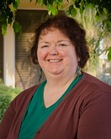
Susan Quash-MahOrganizational and Cross-Cultural Consultant Professional Editor
Location: Eugene, Oregon + Show Bio Susan Quash-Mah, Ph.D., has experience and training in collaboration, program development, innovation, management, and communication skills with the goal of enhancing organizations’ interactions with those whom they serve. Susan has worked in child welfare with numerous tribes and state and county agencies to improve programs and services to families and children, especially American Indian children and families. Susan has also done business and non-profit consulting. And, she provides academic editing for graduate students and faculty specializing in working with those whose first language is not English. Susan lives in Eugene, Oregon, only a couple of hundred miles from the rural farm on the Oregon coast where she grew up. After finishing high school, she went to the local community college and then to the University of Oregon where she earned an M.A. in English. Her Ph.D. from Fielding University is in Human and Organizational Systems. Her dissertation is entitled “Managing Within and Between: How Indian Child Welfare Act Workers Experience Their Intermediary Roles.” Susan lives with her husband, an IT professional and Elder of the White Bear Medicine Society, and her daughter, a college student, as well as four cats and a number of fish who are members of her extended family. Grounded in the connectedness of all beings, Susan looks forward to continuing to serve her community and the people and organizations she will work with in the future. |
|
William Thorne is a Pomo/Coast Miwok Indian from northern California and is enrolled at the Confederated Tribes of the Graton Rancheria. He received his B.A. from the University of Santa Clara in 1974 where he played and coached soccer. He received his J.D. from Stanford Law School in 1977. Admitted to the Utah Bar, he practiced law with Larry EchoHawk for several years at EchoHawk & Thorne where the firm represented the Shoshone-Bannock Tribes as well as individuals and businesses with an emphasis on Federal Indian Law. In 1979 Thorne began his service as a tribal court judge with an appointment as a pro tem judge at the Ute Mountain Ute Tribal Court. Since that time he has served as a tribal judge in Utah, Idaho, Colorado, New Mexico, Arizona, Nevada, Montana, Wisconsin, Washington, Michigan, and California for numerous tribes. In 1986 Thorne was appointed by the governor as a trial judge for the State of Utah. After 14 years as a state trial judge he was appointed in 2000 as a judge of the Utah Court of Appeals where he continues to serve. Thorne has served as a board member of the Native American Rights Fund [Boulder, Co], National Court Appointed Special Advocates [National CASA - Seattle, Wa], North American Council on Adoptable Children [NACAC – St. Paul, MN], the Evan B. Donaldson Adoption Institute [New York, NY], the National American Indian Court Judges Association [NAICJA], United Way of Greater Salt Lake [Salt Lake City, UT]. Thorne has served as a commission member for the PEW Commission on Children in Foster Care, served as a member and then as chair of the Utah Commission on Racial and Ethnic Fairness, served as a member and then vice-chair of the Youth Corrections Board for the State of Utah, served as a member of the Salt Lake Domestic Violence Council, served as a member of the Utah Judicial Council, served as a member of the U.S. Civil Rights Advisory Committee for the State of Utah, and served as chair of the Utah Juvenile Justice Task Force. Thorne currently serves as vice-president of the National Indian Justice Center [after 20 years as a founding member and president], vice-chair of Child Trends, Inc. [the only non-profit, non-partisan research center in the USA that focuses exclusively on improving the lives of children], board member for WestED, Inc. [a non-profit research and technical assistance provider focusing on excellence and equity in education], a member of multiple committees for the National Council of Juvenile & Family Court Judges, a member of the Advisory board for the National Resource Center for Tribes and as a member of the U.S. Children’s Bureau Centennial Blue Ribbon Committee. Thorne continues to speak and teach around the country, chiefly on issues related to children including child welfare reform efforts, disproportionality affecting minority children, and the Indian Child Welfare Act. William A Thorne, Jr. is a Pomo/Coast Miwok Indian from northern California and is enrolled at the Confederated Tribes of the Graton Rancheria. He received his B.A. from the University of Santa Clara in 1974 where he played and coached soccer. He received his J.D. from Stanford Law School in 1977. Admitted to the Utah Bar, he practiced law with Larry EchoHawk for several years at EchoHawk & Thorne where the firm represented the Shoshone-Bannock Tribes as well as individuals and businesses with an emphasis on Federal Indian Law. In 1979 Thorne began his service as a tribal court judge with an appointment as a pro tem judge at the Ute Mountain Ute Tribal Court. Since that time he has served as a tribal judge in Utah, Idaho, Colorado, New Mexico, Arizona, Nevada, Montana, Wisconsin, Washington, Michigan, and California for numerous tribes. In 1986 Thorne was appointed by the governor as a trial judge for the State of Utah. After 14 years as a state trial judge he was appointed in 2000 as a judge of the Utah Court of Appeals where he continues to serve. Thorne has served as a board member of the Native American Rights Fund [Boulder, Co], National Court Appointed Special Advocates [National CASA - Seattle, Wa], North American Council on Adoptable Children [NACAC – St. Paul, MN], the Evan B. Donaldson Adoption Institute [New York, NY], the National American Indian Court Judges Association [NAICJA], United Way of Greater Salt Lake [Salt Lake City, UT]. Thorne has served as a commission member for the PEW Commission on Children in Foster Care, served as a member and then as chair of the Utah Commission on Racial and Ethnic Fairness, served as a member and then vice-chair of the Youth Corrections Board for the State of Utah, served as a member of the Salt Lake Domestic Violence Council, served as a member of the Utah Judicial Council, served as a member of the U.S. Civil Rights Advisory Committee for the State of Utah, and served as chair of the Utah Juvenile Justice Task Force. Thorne currently serves as vice-president of the National Indian Justice Center [after 20 years as a founding member and president], vice-chair of Child Trends, Inc. [the only non-profit, non-partisan research center in the USA that focuses exclusively on improving the lives of children], board member for WestED, Inc. [a non-profit research and technical assistance provider focusing on excellence and equity in education], a member of multiple committees for the National Council of Juvenile & Family Court Judges, a member of the Advisory board for the National Resource Center for Tribes and as a member of the U.S. Children’s Bureau Centennial Blue Ribbon Committee. Thorne continues to speak and teach around the country, chiefly on issues related to children including child welfare reform efforts, disproportionality affecting minority children, and the Indian Child Welfare Act. |
|
Carol Watkins: From February 2010 to April 2012, Carol worked with the Washoe Tribe of Nevada and California under the Title IV-E pre-planning grant developing policies, procedures, and forms as well as a social services case management database to meet the requirements for an approvable Title IV-E program. She has attended and participated in numerous Title IV-E and Tribal consultations and trainings to become proficient in her ability to understand federal regulations and how Tribes can meet those rules while maintaining sovereignty and embracing cultural values and identity. When grant funding ran out, Carol left the Washoe Tribe and joined the NRC4Tribes as a consultant as well as becoming a private Tribal Title IV-E Consultant/Contactor. She has also participated on a number of grant review panels for the Children’s Bureau and the Department of Justice. She contracted with the Sac and Fox Tribe from August through October 2012, working on-site to develop policies, procedures, and forms, and writing a new section for the Tribal Code to complete their Title IV-E plan. The team-work effort between Carol, her assistant, and the Sac and Fox staff resulted in three years of program development being completed in less than 12 weeks. From 1986 to 1999, Carol was a paralegal in Seattle, Washington managing catastrophic personal injury, asbestos, and complex contract litigation cases. She was actively involved in the Washington State Paralegal Association as their Seattle Director, a member of the King County Bar Association and Washington State Trial Association Paralegal Sections. She was nominated for the King County Bar Association Non-lawyer of the Year award in 1995. Carol volunteered as a member and chair of the King County Superior Court Juvenile Diversion Conference Committee for 7 years, adjudicating and counseling first-time offender youth, and was a member of the Citizens’ Advisory Committee for the King County Department of Youth Services for 5 years. She graduated from the King County Police Citizens’ Academy in 1994, from the King County Police Community Policing Instructors’ Training in 1996 and co-instructed the Community Oriented Policing course at the Police Academy in 1997. She volunteered for the King County Police from 1995-1999 and received the King County Sheriff Commander’s Award for outstanding community service in 1999. Carol has a daughter and two grandsons. In addition to being a working mother, she chaired PTA at her daughter’s school, coached girls’ softball, taught paralegal courses at the local community college, and sat on the Advisory Committee for the Highline Community College Paralegal Certificate Program. She also developed an On-Site Victim’s Assistance Program that was approved for seed-funding by the King County Council in 1999. Carol and her husband moved to Nevada in 1999 where she obtained a position at the Tahoe Regional Planning Agency (TRPA) as an Administrative Assistant. She was promoted to Office Manager, then to Facilities/Safety Manager/ Operations Team Leader and remained with the Agency until 2009. She developed Agency policies and procedures, expanded the safety manual, wrote their emergency operations manual, and developed and implemented the Agency’s purchasing program. She was project manager for solar and tenant improvement projects, and managed a $1.5M departmental budget. She earned her Bachelor of Science Degree in 2004. Carol was the Agency representative on the Sierra Nevada Domestic Terrorism Working Group and a member of the California Association of Public Purchasing Officers. |
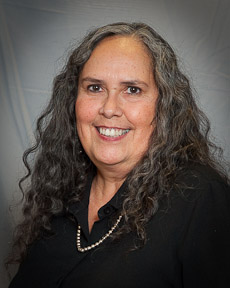
Sandy WhitehawkCo-founder and Director First Nations Orphan Association
Location: Rosebud, South Dakota + Show Bio Sandra Whitehawk is a Sicangu Lakota adoptee from the Rosebud Reservation in South Dakota. As co-founder and director of First Nations Orphan Association, Sandy organizes community forums that bring together adoptees, fostered individuals, families, and professionals with the goal of identifying post-adoption issues and identifying strategies that will prevent removal of children. She also founded and maintains an ongoing support group for adoptees and birth relatives. Sandra has become a spokesperson on the adoption and the foster care system and how it has impacted First Nations people. She provides expert witness testimony and offers training and workshops related to the Indian Child Welfare Act on a variety of topics including cultural competency, historical trauma, the historical perspective of adoption in Indian Country, the Truth Healing Reconciliation Model in Indian child welfare, community building, and Indian Child Welfare Act Education Days. |
|
Patty LaPlant worked Indian child welfare pre-ICWA for the State of Montana and the BIA , where she maintained long-term out-of-culture, out-of-community, out of race and family placements under the tone of the Indian Adoption Act. Since that time, she has administered, written grants for and developed just about every Indian family service program including Head Start Family Services, Child Care and CCDBG, Vocational Ed, IV-E and IV-B, ICWA, CPS, vocational rehabilitation, TANF and Child Support. More recently, Patty was employed by Casey Family Programs in their Denver area Indian Child Welfare office and for Kaufmann and Associates, Inc., providing TA to SAMHSA Tribal Children’s Mental Health grantees. Patty raised her eight children on the Blackfeet Reservation. She is a grandmother and great-grandmother. She also has put up two Blackfeet medicine lodges and carries the tribe’s holy Natoas bundle, thereby accepting spiritual obligations requiring her to take care of the children. |
|
Lorraine Brave, MSW, is Mohawk from New York and has lived in many places such as Salt Lake City, Utah; Sitka, Alaska; Vancouver, British Columbia; and Bainbridge/Seattle, Washington. As an advocate for Native families and their children since the passing of the Indian Child Welfare Act, she has traveled across the United States and Canada providing workshops, presentations, and consultations to many tribes, social agencies, universities and colleges as far away as New Zealand. As one of the founding board members of National Indian Child Welfare Association (NICWA), she has continued over the last 25 years to stay involved in many capacities as a volunteer, trainer, facilitator, staff, and consultant. She has a broad background in Indian child welfare, personally experiencing many roles from casework to manager and director, in both the state governmental agencies and in Native American organizations. She has worked for many years at the University of Washington Graduate School of Social Work as a lecturer/practicum coordinator, responsible for serving as a link between the school of social work, agencies, and students, building professional competencies emphasizing the integration of theory and practice. She has taught graduate classes in Social Work and Native American families, Historical Trauma, and Social Work for Social Justice. |
|
Coming soon |
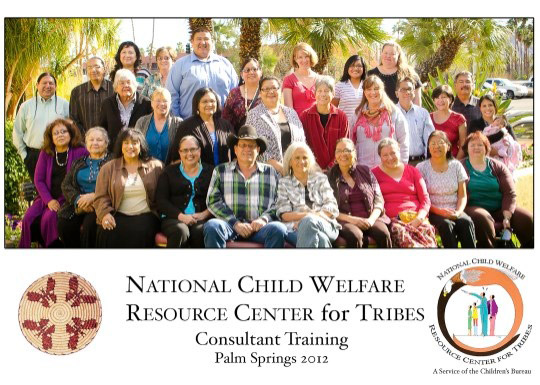
.jpg)
